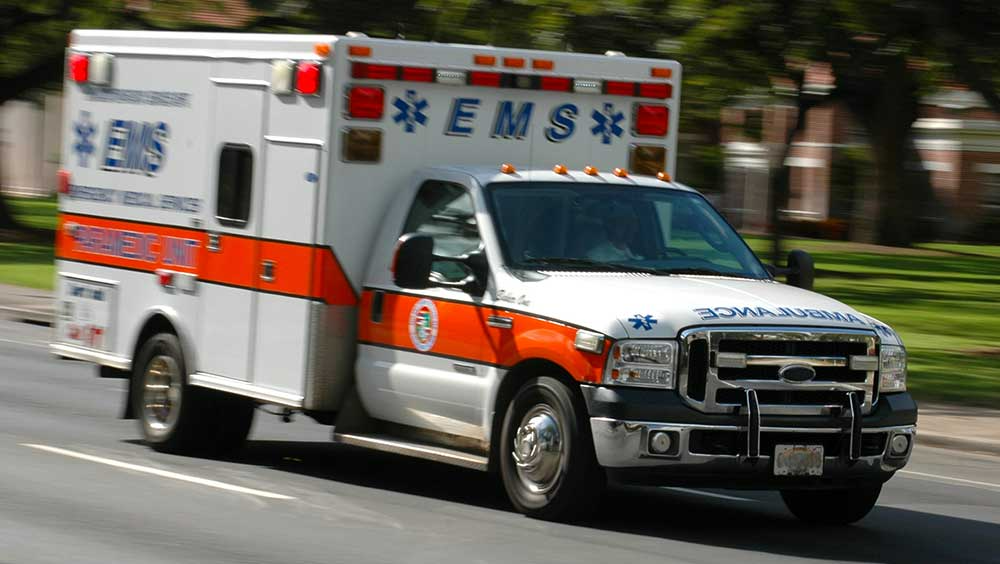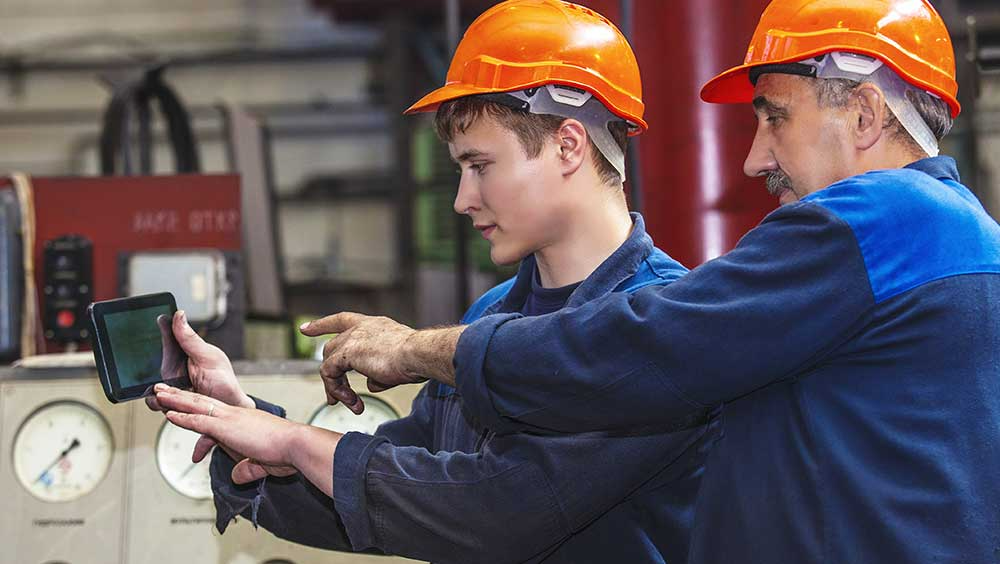Community Ties Giving Program: Local Grants - Union Pacific Foundation - Deadline
Community Ties Giving Program: Local Grants - Union Pacific Foundation - Deadline
Wednesday, May 31, 2023 (12:00 AM - 12:00 AM) (EDT)
Description
Community Ties Giving Program
Union Pacific Foundation Local Grants
2023 Program Overview and Guidelines
As part of the Community Ties Giving Program, Local Grants help us achieve our mission by providing small and medium-sized grants within our priority cause areas to local organizations spread widely across Union Pacific's footprint.
UP FOUNDATION LOCAL GRANTS PROGRAM
GRANT CRITERIA & ELIGIBILITY
APPLICATION PROCESS & TIMELINE
GRANTEE COMMUNICATIONS AND REPORTING
FAQS
Funding Priorities & Objectives
Throughout its existence, the success of Union Pacific's business has been inextricably linked to the economic and community wellbeing of cities and towns across the nation. We take pride in the role we have played in helping communities thrive and believe the impact we can have on local communities is greatest when it is authentic to our history and reflective of the diverse company we are today. As such, we have carefully aligned our Local Grants cause areas to our company's unique heritage, strengths, and assets. Specifically, we prioritize funding for direct services and efforts that build the capacity of organizations focused on the following causes within our local operating communities. Within each focus area, we aim to support programs and organizations working to advance the diversity, equity and inclusion of underrepresented populations within the local context and issue areas addressed. Find more information about our commitment to DEI in our FAQs.
SAFETY
In order for communities to thrive, all residents must feel safe. Just as the safety of our employees and community members is paramount to how we operate, Union Pacific is committed to helping communities prevent and prepare for accidents and emergencies, and helping residents get home safe at the end of each day. As such, we prioritize funding for programs that seek to:
-
Encourage safe behaviors and prevent accidents through education and awareness,
particularly projects which focus on rail, driver, bike, and pedestrian safety, and ensure outreach efforts reach diverse populations. -
Eliminate risks and improve safe and equitable access to community spaces through infrastructure improvements,
such as signage, proper lighting, and public trail improvements. -
Prepare and equip residents and emergency responders*
to effectively respond to incidents and emergencies if or when they occur. -
Prevent crime and violent incidents
through efforts that address the root causes of these issues and seek to mitigate their occurrence. -
Provide homeless and at-risk populations
access to safe shelter and services that ameliorate and prevent homelessness. -
Build the capacity of safety-focused organizations
to integrate DEI best practices internally and/or within their community programs.
*Union Pacific supports publicly -funded emergency responders through a variety of corporate programs; only independent nonprofit, 501(c)(3) emergency response organizations, such as volunteer departments, are eligible for funding through this grant program.

WORKFORCE DEVELOPMENT
For nearly 160 years, Union Pacific has helped stimulate economic growth in cities and towns throughout the nation by training and providing employment to millions of workers. More than ever, we are committed to helping underrepresented residents in our communities achieve family-supporting careers like those offered by Union Pacific. As such, we prioritize funding for programs that seek to:
-
Put youth on the right track
by creating awareness of family-supporting jobs like those Union Pacific offers, and building foundational skills, especially in Science, Technology, Engineering, and Mathematics (STEM) as well as necessary technical and life skills, to begin a trajectory toward these careers. -
Raise awareness of, educate and prepare young adults
for middle skills jobs like those Union Pacific offers, for instance through community colleges, vocational and career training programs, workforce readiness initiatives, and programs that assist with job placement and/or on-the-job experience. Programs that develop proficiency in areas of relevance to Union Pacific operations such as welding, electrical work, machine operations, and civil and electrical engineering are given priority. -
"Up-skill" the existing workforce
by providing training and resources that enable them to reach the next level of their career. Programs that develop proficiency in areas of relevance to Union Pacific operations are given priority. -
Build the capacity of workforce development-focused organizations
to integrate DEI best practices internally and/or within their community programs.
Programs with a focus on cultivating a diverse and inclusive workforce through the intentional support of women and BIPOC individuals in particular, as well as those with a focus on rural communities, will be given special consideration.

COMMUNITY SPACES
Vibrant, diverse and inclusive communities are essential in attracting businesses and tourism, and establishing a desirable place for skilled workers and their families to call home. Just as the railroad opened avenues for sharing different cultures and experiences, we seek to ensure all residents within our operating locations – particularly underrepresented populations, BIPOC communities, and people with disabilities – have equitable access to special places in the community that celebrate cultural diversity, artistic expression, our natural environment, and the social interactions that enrich our lives. Ultimately, we are committed to supporting the local economy by building and enhancing community spaces that contribute to the distinct identity of a city or town, creating diverse and inclusive destinations where families, businesses, and visitors want to be. As such, we prioritize funding for programs and projects that achieve the following objectives:
-
Create, sustain or expand artistic and cultural experiences
offered to a broad and diverse audience (e.g., museums, theatres, libraries, concerts, lectures, etc.), and ensure equitable access. -
Preserve and share the unique culture and history
of the local community, including projects related to train and/or Union Pacific history. -
Provide clean, safe, equitable and accessible outdoor recreational and/or educational opportunities
that foster an appreciation for our natural environment. -
Beautify neighborhoods and main street areas, especially in historically underinvested neighborhoods,
in order to improve livability, promote commerce and, ultimately, attract more residents, businesses and visitors to town. -
Plan for, create or enhance unique spaces
that reflect the character of a place and take into account community members' diverse needs, interests, and desires. -
Build the capacity of community spaces-focused organizations
to integrate DEI best practices internally and/or within their community programs.

ENVIRONMENTAL SUSTAINABILITY
The future of our business, communities and planet depends on bold, collective action to reduce and slow the impacts of climate change while building a more sustainable economy for the next generation. Through our Climate Action Plan, Union Pacific is taking deliberate steps to reduce our environmental impact and helping our partners improve their own. Extending this commitment to our community investments, aligned with our Community Ties Giving Program mission, we seek to support leading environmental non-profits and community-based organizations to advance the health of our environment. Specifically, we seek to support programs and projects that achieve the following objectives:
-
Preserve and restore nature,
including programs focused on natural habitats, ecosystems, and biodiversity. -
Protect and enhance water or air quality
through innovative and proactive solutions that seek to improve clean air and water, including water conservation and emission reduction programs. -
Reduce waste
through initiatives focused on promoting recycling and circularity throughout the community, including recycling and composting programs and other efforts that reduce waste. -
Develop environmental stewards
through youth programs focused on fostering environmental appreciation, responsibility, and leadership. -
Advance a green economy
by helping communities accelerate their transition to green jobs and renewable energy, as well as helping nonprofits and small businesses build their own capacity to operate more sustainably.

©Jacqueline Ferrato/TNC
Local Needs
Because no two communities are exactly alike, a small portion of our funding is allocated to assist local communities thrive in ways unique to them and meet vital local needs. As such, we prioritize funding for programs that achieve the following:
-
Improve the quality of life
among underserved populations. -
Address a critical challenge
among those most in need. -
Advance local DEI efforts,
including grants to BIPOC-led organizations.
Additional Info
Deadline: May 31, 2023
